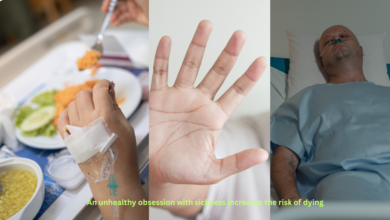The World Health Organization is calling for governments to regulate e-cigarettes like tobacco and to prohibit all flavors,

The World Health Organization is calling for governments to regulate e-cigarettes like tobacco and to prohibit all flavors, posing a threat to cigarette companies’ investments in smoking alternatives. Despite some viewing e-cigarettes as a tool to reduce the harm caused by smoking, the UN agency is pushing for immediate action to control them. It stated that there is insufficient evidence to support the claim that e-cigarettes aid smokers in quitting, and highlighted potential health risks and risks of nicotine addiction among non-smokers, particularly young people.
Tedros Adhanom Ghebreyesus, the Director-General of the World Health Organization (WHO), has urged countries to take strict measures as more 13-15 year olds are using vapes than adults in all WHO regions due to aggressive marketing. He expressed concern that kids are being lured into using e-cigarettes at a young age and may become addicted to nicotine. The WHO is calling for changes, including bans on all flavoring agents such as menthol, and the application of tobacco control measures to vapes, which encompass high taxes and bans on use in public places. It’s important to note that the WHO provides guidance but has no authority over national regulations, although its recommendations are often voluntarily adopted.
The WHO and other anti-tobacco organizations are advocating for stricter regulations on emerging nicotine products, targeting the alternatives that some major cigarette companies like Philip Morris International (PM.N) and British American Tobacco (BATS.L) are depending on for their future strategies.
Industry participants such as Imperial Tobacco (IMB.L) and the UK Vaping Industry Association argue that vaping carries substantially lower health risks than tobacco and contributes to harm reduction. They also emphasize that flavors play a crucial role in encouraging smokers to make the transition, a viewpoint shared by some advocates of tobacco control.
Cancer Research UK asserts that although e-cigarettes are not without risk and should be used exclusively as a means to quit smoking, there is no substantial evidence that they cause cancer, in contrast to smoking, which is known to cause at least 15 different types of cancer.
Marina Murphy, senior director of scientific and medical affairs at vaping firm ANDS, argued that regulating vapes like cigarettes would perpetuate misconceptions about the relative risks of vaping and deliver an incorrect message to smokers. She also criticized the World Health Organization’s position, stating it was “disconnected from reality.”
In response, the WHO highlighted that while the long-term health effects of vaping are not fully understood, vapes produce certain substances known to cause cancer, present risks to heart and lung health, and could impact the brain development of young individuals.





